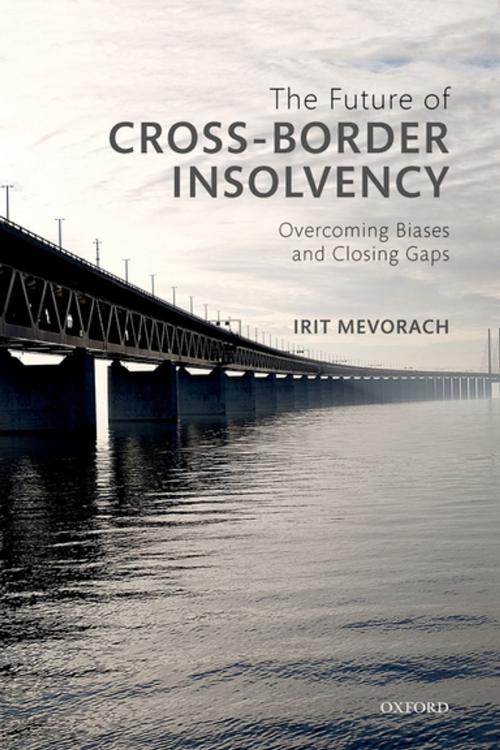The Future of Cross-Border Insolvency
Overcoming Biases and Closing Gaps
Nonfiction, Reference & Language, Law, Corporate, Business & Finance| Author: | Irit Mevorach | ISBN: | 9780191085734 |
| Publisher: | OUP Oxford | Publication: | March 1, 2018 |
| Imprint: | OUP Oxford | Language: | English |
| Author: | Irit Mevorach |
| ISBN: | 9780191085734 |
| Publisher: | OUP Oxford |
| Publication: | March 1, 2018 |
| Imprint: | OUP Oxford |
| Language: | English |
A fresh and insightful guide to post-financial crisis cross-border insolvency, this book interrogates the current regime and sets out a pattern to improve its future. In recent decades, and especially since the global financial crisis, a number of important initiatives have focused on developing effective solutions for managing the insolvency of multinational enterprises and financial institutions. Irit Mevorach here takes stock of the varying success of previous policy, and identifies the gaps and biases that could be bridged by a new approach. The book first sets out the theoretical debates regarding cross-border insolvency and surveys the strengths and weaknesses of the prevailing method - modified universalism - synthesizing divergences into a rubric for both commercial entities and financial institutions. Adhering to these norms more robustly, Mevorach argues, would enhance global welfare and produce the best outcomes for businesses and institutions. Drawing upon sources from international law as well as behavioural and economic theory, Mevorach considers how to translate modified universalism into binding international law and how to choose the right instrument for cross-border insolvency; the impact instrument design has on decisions and choices, and how to encourage compliance. In particular, the book proposes guidelines that could potentially overcome, or at least take into account, behavioural biases in decision-making in order to create a system that works for businesses, and offers a blueprint for the future of cross-border insolvency.
A fresh and insightful guide to post-financial crisis cross-border insolvency, this book interrogates the current regime and sets out a pattern to improve its future. In recent decades, and especially since the global financial crisis, a number of important initiatives have focused on developing effective solutions for managing the insolvency of multinational enterprises and financial institutions. Irit Mevorach here takes stock of the varying success of previous policy, and identifies the gaps and biases that could be bridged by a new approach. The book first sets out the theoretical debates regarding cross-border insolvency and surveys the strengths and weaknesses of the prevailing method - modified universalism - synthesizing divergences into a rubric for both commercial entities and financial institutions. Adhering to these norms more robustly, Mevorach argues, would enhance global welfare and produce the best outcomes for businesses and institutions. Drawing upon sources from international law as well as behavioural and economic theory, Mevorach considers how to translate modified universalism into binding international law and how to choose the right instrument for cross-border insolvency; the impact instrument design has on decisions and choices, and how to encourage compliance. In particular, the book proposes guidelines that could potentially overcome, or at least take into account, behavioural biases in decision-making in order to create a system that works for businesses, and offers a blueprint for the future of cross-border insolvency.















